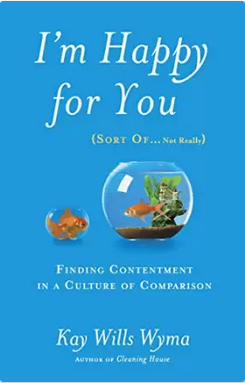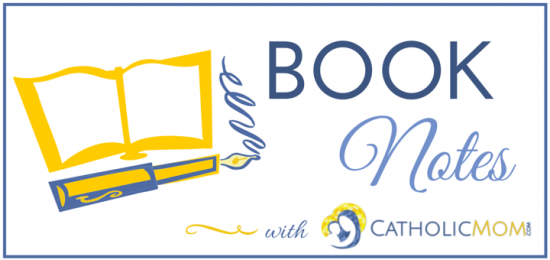I'm usually in the middle of several books at once, but it's rare that I find myself reading a novel and a nonfiction book that center on the same theme. That's what happened, though, when I read Lorraine Duffy Merkl's Back to Work She Goes and Kay Wills Wyma's I'm Happy for You (Sort Of...Not Really).
 In the novel Back to Work She Goes, Lorelei navigates a return to full-time work in New York City's competitive, fast-paced advertising field after freelancing for 15 years while her children were small. She finds herself up against younger bosses, coworkers closer in age to her own children, a social-media learning curve, and the perceived expectations of other women.
In the novel Back to Work She Goes, Lorelei navigates a return to full-time work in New York City's competitive, fast-paced advertising field after freelancing for 15 years while her children were small. She finds herself up against younger bosses, coworkers closer in age to her own children, a social-media learning curve, and the perceived expectations of other women.
It's those expectations--and the challenges that go along with dealing with other people's perception of who she is and what her abilities are--that prove to be more of an obstacle to Lorelei, both professionally and personally, than learning how to use LinkedIn. Lorelei was the kind of character you can relate to and cheer for; you find yourself hoping she'll do well and relating to the obstacles she encounters.
I was about halfway through I'm Happy for You (Sort of...Not Really) at the same time I was reading this novel, and it struck me that both authors are dealing with similar issues: what Kay Wills Wyma terms "the culture of comparison."
 Kay Wills Wyma's nonfiction book, I'm Happy for You (Sort of...Not Really) has a subtitle that says it all: Finding Contentment in a Culture of Comparison. This was Lorelei's challenge in Back to Work She Goes, and it's a challenge for all of us, regardless of our age, employment status, or state of life.
Kay Wills Wyma's nonfiction book, I'm Happy for You (Sort of...Not Really) has a subtitle that says it all: Finding Contentment in a Culture of Comparison. This was Lorelei's challenge in Back to Work She Goes, and it's a challenge for all of us, regardless of our age, employment status, or state of life.
Wyma's encouraging book explores the trouble we (and our families) can get into when we fall into the trap of comparing ourselves to others--with real-life examples from her own family and friends. She does this with a light touch, so the reader can smile along with the stories, and sums up each chapter with a strategy for shifting our focus from what we think we lack to what we already have (and should be grateful for). These real-life stories help the reader to remember that we're not alone. We all obsess about what someone else has, does, or looks like--and that's a toxic way to live.
The book ends with a few pages of discussion questions that would work equally well as journal prompts or book-club conversation starters. Kay Wills Wyma challenges the reader to consider that the temptation to compare began in the Garden of Eden. Interesting thought:
"comparison was the lie that messed with Adam's and Eve's thoughts. As Eve compared what was with what could be, her focus moved from simply living to being burdened by perceived inequalities. Contentment faded; discontentment accompanied by shame and blame flourished....once we start measuring our lives--against others, against what we could have, against what we think we should have--what we seem to lack takes center stage." (p. 30)
My recommendation? Read both of these. Together. They both have an important message about living in gratitude for what we have, trusting that God has given us what we need, and using our own gifts and talents to benefit the world.
Be sure to check out our Book Notes archive.
When you purchase these books through any of the affiliate links in this post, you support the work we do at CatholicMom.com at no extra cost to you!
Copyright 2015 Barb Szyszkiewicz, OFS
About the Author

Barb Szyszkiewicz
Barb Szyszkiewicz, senior editor at CatholicMom.com, is a wife, mom of 3 young adults, and a Secular Franciscan. Barb enjoys writing, cooking, and reading, and is a music minister at her parish. Find her blog at FranciscanMom and her family’s favorite recipes with nutrition information at Cook and Count. Barb is the author of The Handy Little Guide to Prayer and The Handy Little Guide to the Liturgy of the Hours, available from Our Sunday Visitor.



.png?width=1806&height=731&name=CatholicMom_hcfm_logo1_pos_871c_2728c%20(002).png)
Comments